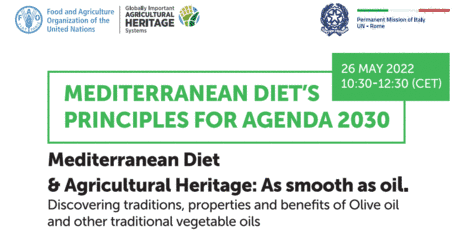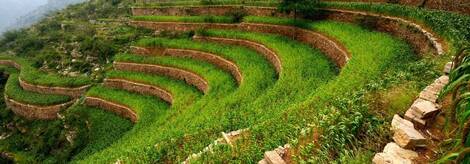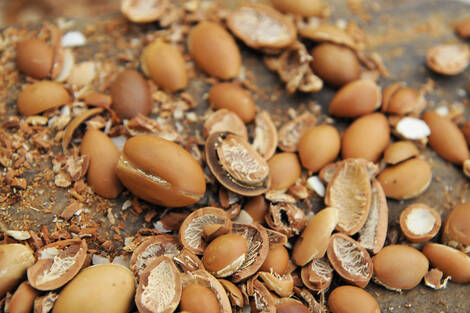
2022 marks the 20th Anniversary of FAO’s Globally Important Agricultural Heritage Systems (GIAHS) Programme.
To celebrate the achievements of the past 20 years, we would like to invite all stakeholders and countries working in designated and potential GIAHS to contribute to the 20th Anniversary Celebration.
Guidelines for submissions of digital material:
The objective of this call is to:
a) Showcase successful activities of GIAHS in the past 20 years;
b) Provide first-hand testimonials and voices from the ground;
c) Highlight the importance...

The Italian Permanent Representation to the UN Agencies in Rome and the Secretariat of the Globally Important Agricultural Heritage Systems (GIAHS) are pleased to announce the webinar “As smooth as oil.Discovering traditions, properties and benefits of Olive oil and other traditional vegetable oils”.
This online event is part of the initiative “Mediterranean Diet’s Principles for Agenda 2030”, a series of thematic sessions promoted by the Italian Permanent Representation that aim to...

FAO
Three sites in China - an ancient tea-producing area, a nomadic livestock-rearing region and a rain-fed stone terrace farming system - were formally recognised as Globally Important Agricultural Heritage Systems (GIAHS), for their unique ways of using traditional practices and knowledge while maintaining unique biodiversity and ecosystems.The sites were designated during a meeting of the GIAHS Scientific Advisory Group taking place in Rome this week (17-19 May). The selection criteria stipulate...
Five plants hidden in our everyday lives
20 May 2022
20 May 2022

FAO has designated the Ait Souab-Ait Mansour region of Morocco, a unique area where argan trees have been cultivated for centuries, as a Globally Important Agricultural Heritage Systems (GIAHS). This GIAHS designation is helping to support conservation, while promoting its sustainable use for local economies.


